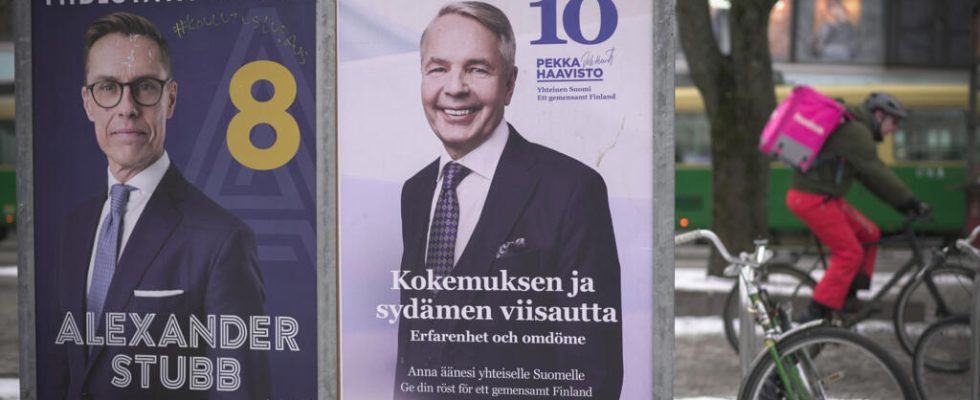The second round of the Finnish presidential election, this Sunday, February 11, sees two heavyweights in national politics clash. Although he has limited powers, the president has seen his diplomatic role gain importance on the international scene since the resurgence of tensions with neighboring Russia.
3 mins
On one side, the twirling Alexander Stubb. The former conservative Prime Minister, 55, came first in the first round of the presidential election with 27.2% of the votes. On the other, the more calm Pekka Haavisto. A member of the Greens party, he is running as an independent at 65 and received 25.8% in the first round of the presidential election. The period between the two rounds was marked by great courtesy and very consensual televised debates, reports our regional correspondent, Carlotta Morteo. Especially since the two candidates agree on the essentials: the danger represented by Russia, the supreme interest for Finland to fully commit to NATO and alongside threatened countries.
Already considerably deteriorated since the Russian offensive in Ukraine, relations with Russia have further deteriorated with Finland’s membership in NATO. At the end of August, Helsinki noted an influx of migrants on its eastern border, accusing Moscow of orchestrating a migration crisis at its gates. The country closed its border with its neighbor in November, a measure supported by all the presidential candidates.
The same vision
Alexander Stubb and Pekka Haavisto, both former foreign ministers, share the same vision on the position to adopt towards Russia. The first thus considered it legitimate to use the 300 billion dollars of Russian assets abroad, during a debate organized by the daily Helsingin Sanomat Tuesday. “ Sanctions against Russia must be strengthened », added his opponent in the second round of the presidential election. “ The European Union must continue to reduce the Russian war economy and, of course, when peace returns, Russia » must be financially responsible for “ everything that was destroyed » by tapping into Moscow’s oil and gas revenues, he added. Their opinion differs only on one sensitive issue: the storage of nuclear weapons on Finnish territory. Alexander Stubb considers it. His rival would like to avoid it.
Read alsoEuropean of the week – Presidential election in Finland: two candidates and the same line against Russia
The Finns were very marked by the twelve years in office of the outgoing president, Sauli Niinistö, who perfectly embodied his role as head of the armed forces. Appreciated for his calm and humility, known for the liveliness of his analyzes and his frankness, he is undoubtedly the leader who has spoken most regularly to Vladimir Putin on the telephone in recent years, but who did not hesitate the following day of the invasion of Ukraine, to cut ties with its big neighbor, and to ask without trembling for Finland to join NATO.
The international context has in any case pushed voters to take an interest in the election. Seventy-five percent of them went to the polls in the first round, more than in previous elections. But given the lack of significant foreign policy differences between the two candidates, voters will likely make their decision based on their policy preferences. The conservative Alexander Stubbsans, a supporter of debt reduction and development aid, should thus benefit from the transfer of votes from voters from the center and the extreme right. Haavisto Pekka hopes to win back left-wing voters and above all convince the undecided. A survey carried out by the daily Helsingin Sanomatpublished Monday February 5, credits Stubb with 54% of voting intentions against 46% for Haavisto.
(And with AFP)
